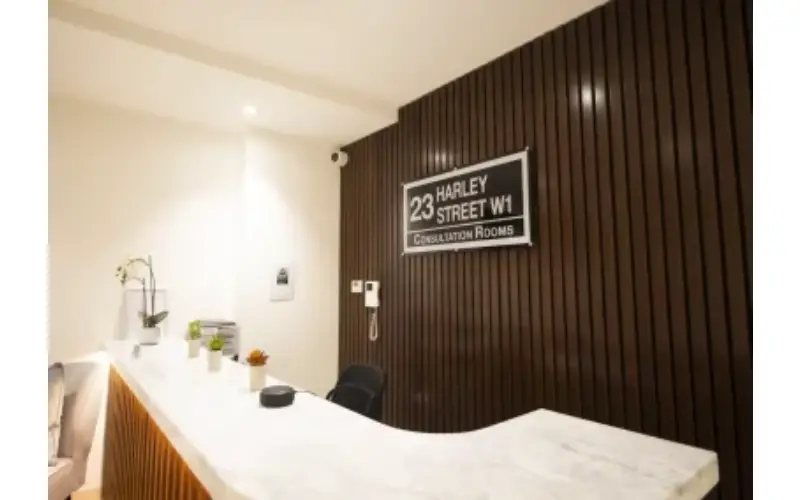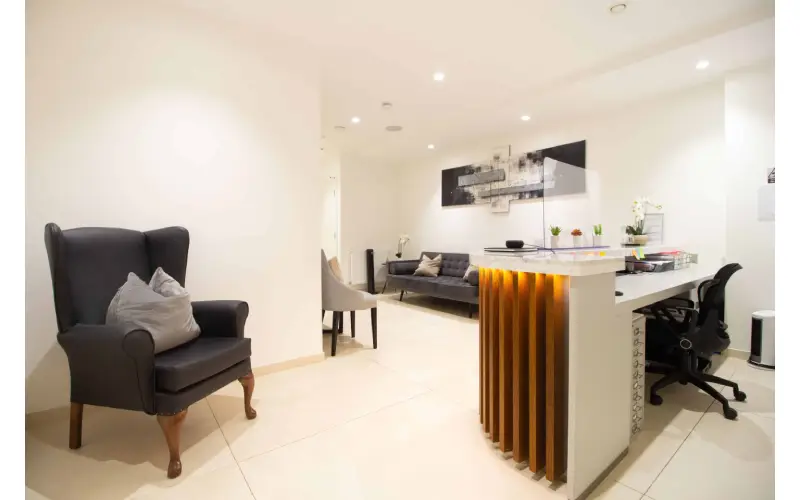Designing for Wellness The Evolution of Medical Consulting Rooms
Designing for Wellness in Medical Consulting Rooms involves creating environments that foster healing, comfort, and efficiency for both patients and healthcare providers. These spaces are crucial as they serve as the first point of contact for patients seeking medical care, influencing their initial perceptions of the healthcare facility. The design of medical consulting rooms plays a pivotal role in enhancing patient experience, optimizing workflow for medical staff, and supporting positive health outcomes. From layout and furniture selection to lighting and color schemes, every aspect of the design should be meticulously planned to promote a sense of calm, privacy, and functionality. Achieving these goals requires a deep understanding of healthcare practices, patient needs, and technological advancements that can improve efficiency and care delivery.
Designing for Wellness in Medical Consulting Rooms
The design of Medical Consulting Rooms significantly impacts patient well-being and clinical outcomes. These spaces are crafted to provide a serene atmosphere that reduces the stress and anxiety often associated with medical visits. Natural light, soothing color palettes, and comfortable seating contribute to a welcoming environment. Layouts are designed for privacy while maintaining accessibility for medical equipment and staff. The materials chosen are durable, easy to clean, and promote infection control. Integration of natural elements, such as indoor plants, can enhance psychological comfort. Patient-centered design principles drive the arrangement of furniture and amenities to prioritize patient comfort and convenience. Ultimately, well-designed consulting rooms promote a positive patient experience and support healthcare providers in delivering effective care.

The Impact of the Environment on Medical Consulting Rooms
The environment of Medical Consulting Rooms profoundly influences patient perception and outcomes. A well-designed space can alleviate patient anxiety, enhance communication between healthcare providers and patients, and improve overall satisfaction. Factors such as lighting, acoustics, temperature control, and air quality are carefully considered to create a conducive atmosphere. Comfortable seating arrangements and privacy measures enhance patient confidentiality and dignity. The layout is optimized to facilitate efficient workflow for medical professionals, ensuring timely and effective care delivery. Additionally, a supportive environment can contribute to better staff morale and productivity. By prioritizing environmental considerations in design, medical consulting rooms can positively impact patient recovery rates and overall healthcare quality.
Innovative Approaches to Medical Consulting Rooms
Innovative approaches to Medical Consulting Rooms integrate cutting-edge technology and design principles to enhance patient care and operational efficiency. Advanced telemedicine capabilities allow for remote consultations and real-time data exchange, expanding access to healthcare services. Modular and adaptable room configurations accommodate diverse medical specialties and evolving patient needs. Smart technologies, such as electronic medical records (EMRs) and digital diagnostic tools, streamline workflows and improve accuracy in diagnosis and treatment planning. Ergonomic furniture and equipment promote comfort and reduce physical strain for healthcare providers. Sustainable design practices minimize environmental impact while optimizing energy efficiency and resource utilization.
Patient-Centered Design in Medical Consulting Rooms
Patient-centered design in Medical Consulting Rooms prioritizes the needs, preferences, and comfort of patients throughout their healthcare journey. These spaces are tailored to foster a sense of safety, respect, and empowerment among patients. Accessibility features ensure equitable access for individuals with disabilities or special needs. Clear signage and wayfinding systems enhance navigation within the facility, reducing patient stress and confusion. Flexible scheduling options and communication tools support patient engagement and shared decision-making with healthcare providers. Privacy considerations are paramount, with soundproofing materials and confidential consultation areas safeguarding patient confidentiality.
Technology Integration in Medical Consulting Rooms
Technology integration in Medical Consulting Rooms revolutionizes healthcare delivery by enhancing diagnostic accuracy, treatment efficiency, and patient engagement. Advanced imaging systems, such as MRI and CT scanners, provide detailed anatomical information for precise diagnosis and treatment planning. Telehealth platforms enable remote consultations and virtual care delivery, expanding access to medical expertise and reducing travel-related burdens for patients. Electronic health records centralize patient information, improving care coordination and continuity across healthcare settings. Interactive patient portals empower individuals to access their medical records, schedule appointments, and communicate with healthcare providers securely. Wearable devices and mobile health apps monitor patient health metrics in real time, promoting proactive management of chronic conditions.
Ergonomic Considerations in Medical Consulting Rooms
Ergonomic considerations in Medical Consulting Rooms prioritize the physical well-being and comfort of healthcare providers, thereby improving work efficiency and reducing occupational injuries. Adjustable furniture and equipment accommodate varying user heights and preferences, supporting proper posture and reducing musculoskeletal strain. Task-specific workstations optimize workflow by placing essential tools and resources within easy reach. Adequate lighting and glare reduction strategies minimize eye strain and enhance visual comfort during clinical assessments and procedures. Sound-absorbing materials and acoustic treatments create a quiet environment conducive to concentration and patient privacy. By integrating ergonomic principles into design planning, medical consulting rooms can support the health and productivity of healthcare professionals while ensuring optimal care delivery for patients.
Future Trends in Medical Consulting Rooms
Future trends in Medical Consulting Rooms are poised to transform healthcare environments through innovative technologies, sustainable practices, and patient-centered design principles. Artificial intelligence and machine learning algorithms will enhance diagnostic accuracy and personalized treatment plans, empowering healthcare providers to deliver precision medicine. Virtual and augmented reality technologies will enable immersive training simulations for medical education and procedural practice. Modular construction methods will facilitate rapid room reconfigurations to accommodate fluctuating patient volumes and emerging healthcare needs. Biophilic design principles will integrate natural elements into medical spaces, promoting emotional well-being and stress reduction. Sustainable building materials and energy-efficient systems will minimize environmental impact while optimizing operational costs.
Conclusion
Medical Consulting Rooms represent critical spaces where design innovation, technological integration, and patient-centered care converge to optimize healthcare delivery. By prioritizing wellness-oriented design principles, such as creating calming environments and ensuring ergonomic comfort, these rooms can significantly impact patient satisfaction, clinical outcomes, and operational efficiency. The integration of advanced technologies, from telemedicine platforms to AI-driven diagnostics, promises to revolutionize healthcare accessibility and quality. As healthcare continues to evolve, embracing sustainable practices and future-oriented design trends will be essential for creating adaptable, resilient medical consulting rooms that support the evolving needs of patients and healthcare providers alike.

Fran Peters is a dedicated writer specializing in health and medical content. With a background in healthcare and a passion for helping others lead healthier lives, Fran brings a wealth of knowledge and expertise to her writing.















Post Comment